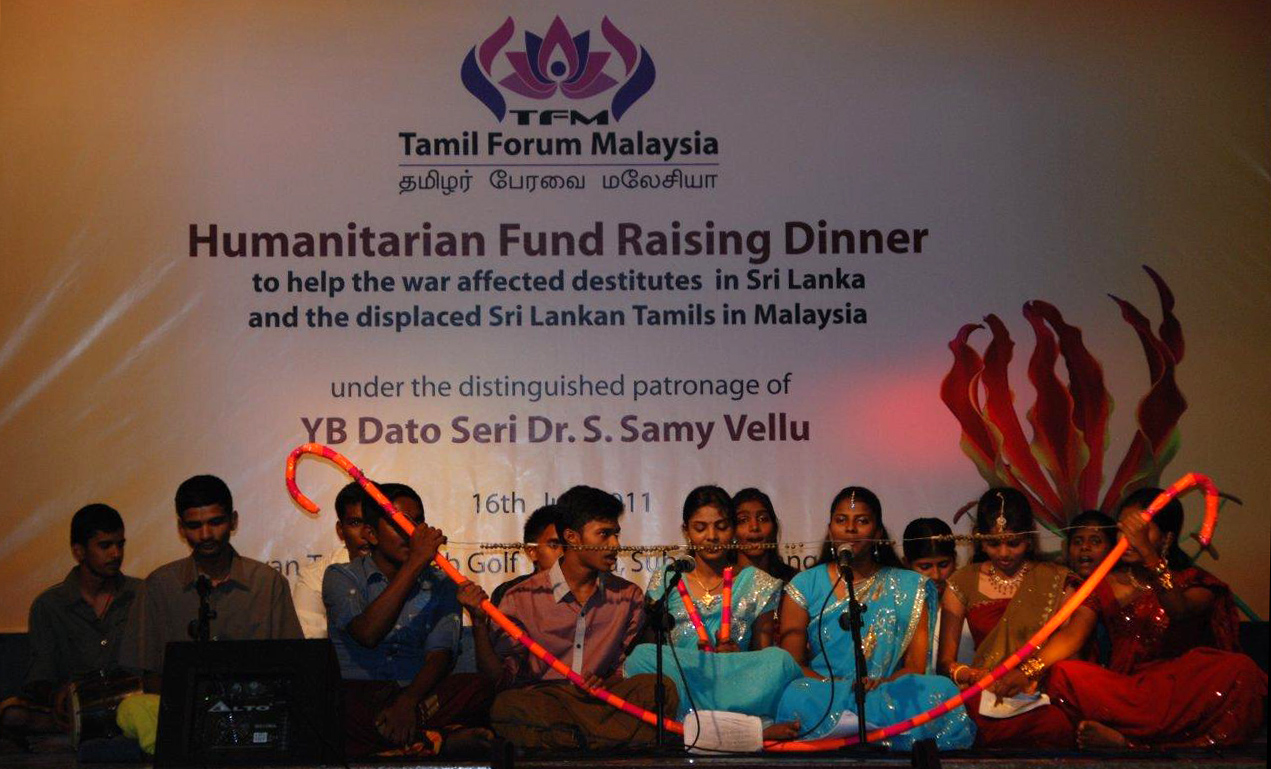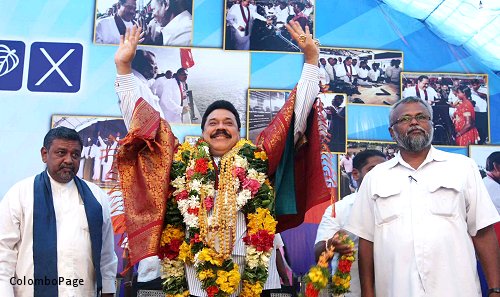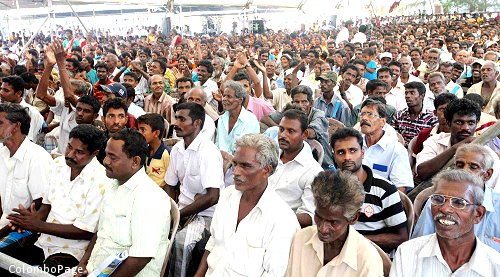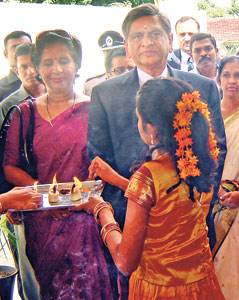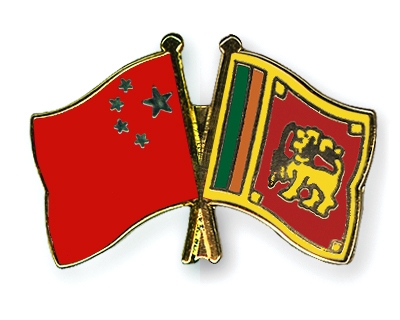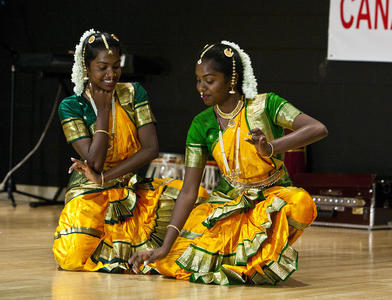 |
| US Secretary of State Hillary Clinton with Tamil Nadu Chief Minister J. Jayalalithaa . Photo PTI |
The United States is “looking at some innovative and creative ideas to break the impasse over the Sri Lankan Tamils issue,” PTI quoted visiting US Secretary of State Hillary Clinton telling Tamil Nadu Chief Minister J. Jayalalithaa in Chennai Wednesday.
The report did not elaborate.
Meanwhile, in a public address Ms. Clinton said that India's example of multicultural democracy should serve as a model for Sri Lanka.
Describing Chennai, Tamil Nadu’s capital, as an example of how much society can achieve when all citizens fully join their country's political and economic life, she added: "Every citizen of Sri Lanka deserves the same hope and opportunity for a better future." (corrected from earlier post)
Her comments predictably drew loud applause from the crowd.
Addressing a crowd of students, industrialists, businessmen, artistes and members of civil society at the Anna library, Ms. Clinton said she chose to come to the coastal city as "an admirer of what has been accomplished in the country in the last 18 years".
She described Tamil Nadu as one of the "most industrialised and educated states" that indicates why India should take a leadership role in the region.
Ms. Clinton’s visit to Tamil Nadu was the only regional engagement of her much anticipated three-day official visit to India.
She is the first high-ranking US official to visit the southern state, one of the powerhouses of India’s booming economy, and a key destination for US investment. The US consulate in Chennai issues more skilled temporary worker visas than any other US outpost in the world, the Wall Street Journal says.
Aligned interest and values
"The United States and India can work together to advance democratic values in the region,” the Times of India quoted her as saying. "Our interests align and our values converge."
“We can support states transitioning into democracy in Africa and the Middle East. India's Election Commission widely viewed as the gold standard for running elections can play a role in this," she said.
"There is no better place to speak about Asia Pacific than Chennai, which looks out onto the Bay of Bengal. Indian traders have sailed these waters for thousands of years and their influence can still be seen across the region – in the Tamil influences in the Angkor Wat temples in Cambodia and in the Ganesha gods that guard homes in Indonesia."
"India will have the duty to speak out against human rights violations in Asia. … "We encourage India not just to look east but also act east."
"India's diverse and democratic system can serve as a model for Sri Lanka. In Chennai and in Tamil Nadu, you can see how much society can achieve when all citizens participate in political and economic life. Every citizen of Sri Lanka deserves the same."
Meeting Jayalalitha
Earlier, Ms. Clinton met with Ms. Jayalalithaa for an hour in the Secretariat. They discussed various social, political and economic issues of common interest, an official press release said.
Contrary to assertions attributed to Indian External Affairs Ministry officials last week, the Tamil question in Sri Lanka also featured in their discussions, India press reports said Wednesday.
Ms. Jayalalithaa was quoted by PTI as pointing out that though Sri Lanka’s war en ended two years ago, Tamils in Jaffna area are still in camps and unable to go back to the original areas where they used to live.
Ms. Clinton also congratulated Ms. Jayalalithaa on her electoral victory in the April 13 Assembly polls, and invited the Tamil Nadu leader to visit the United States, PTI said.
India policy on Sri Lanka
Ahead of Ms. Clinton’s visit to Chennai, the Wall Street Journal published an op-ed by Sadanand Dhume, one of its columnists and a resident fellow at the American Enterprise Institute in Washington, slamming India’s soft-pedalling policies towards Sri Lanka
Noting how “New Delhi has failed to slow Sri Lanka's rapid slide toward authoritarianism, protect the rights of minority Tamils, or stem rising Chinese influence,” Mr. Dhume asked: “how can India expect more clout on the world stage when it wields so little influence in its own neighborhood?”
“At the heart of India's Sri Lanka problem lies the thuggish regime of President Mahinda Rajapaksa,” Mr. Dhume said. Detailing the concentration of power in the Rajapaksa family’s hand, he added “This nepotism on steroids has gone hand in hand with one of Asia's worst human rights records. Nor has the Rajapaksa regime confined itself to mistreating minority Tamils.”
“Through all this, India's record has hardly been inspiring. In 2009, India's toothless admonitions failed to prevent the massacre of civilians. Two years later, it has failed to convince the Rajapaksa regime to extend an olive branch to its own citizens.”
Mr. Dhune criticized India’s policy of trying to outbid China’s influence in Sri Lanka with aid projects of its own, saying “ultimately this is a short-sighted strategy.”
“Instead, India must retool its Sri Lanka strategy to play to its own strengths: pluralism and democracy. This means keeping open the option of throwing its weight against Colombo at the UN. It means support for liberal elements in Sri Lankan society [and] working with Western democracies, Japan and the human rights community to demand a degree of accountability in Colombo as a step toward a lasting peace.”
“If India succeeds in nudging Sri Lanka toward embracing pluralism and democratic values as the foundation of prosperity, New Delhi will have enhanced both its influence and its international prestige,” he said.

